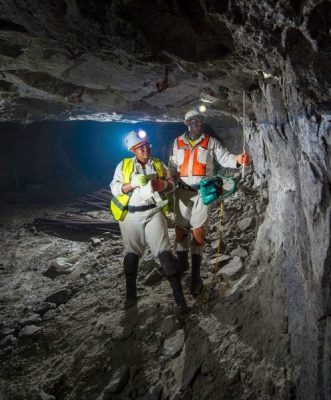Hwange women yearn for mine job opportunities

MS Pauline Banda, a young woman in her early thirties sits attentively at a roadside vegetable market in Lwendulu, a high-density suburb in the colliery town of Hwange.
She sits under the scorching sun watchful of any suspicious movement by her fellow vendors — a potential signal of the presence of police officers. The roadside markets are unregulated. After two years in the trade and numerous arrests by the Hwange Colliery and
Zimbabwe Republic Police, Ms Banda is contemplating on migration in search of better opportunities.
“After finishing my A-level I went for a certificate in Hotel Catering and Food Technology.
But, since then, I have never been employed despite several attempts in different mining companies. I now want to go to Victoria Falls, maybe I will get a job,” said Ms Banda.
Hwange is dominated by coal mining companies. Mining companies’ world over provide job opportunities to both the educated and uneducated members of the community. But young women in Hwange are struggling to penetrate the industry. Zimbabwe Diamond and Allied Minerals Workers Union (ZDAMWU) Secretary General Mr Justice Chinhema notes that the mining sector is male-dominated.
“We feel there is a need to break this barrier. It is worse in Hwange; you hardly see female workers engaged. Most of the few women in jobs are employed as guards, janitors or general hands. These days there is no work that women cannot take. Gender equality has to be applied and every person, if qualified for a job, should be given an opportunity.
As ZDAMWU we have created a Woman, Youth and Gender department to promote gender equality, equity and empowerment of women and young workers in the mining industry. It is also pushing for the ratification of the International Labour Organisation (ILO) convention 190 which deals with sexual harassment,” said Mr Chinhema.
The eighth Zimbabwe Vulnerability Assessment Committee (ZimVAC) 2020 – Urban Livelihoods Assessment notes that urban areas provide several socio-economic opportunities for many people but are also becoming increasingly precarious places to live in, especially for low-income residents. The Covid-19 pandemic and its debilitating impacts on livelihoods has exacerbated the situation by eroding community coping capacities.
ZDAMWU says another repelling factor for young women in local mines is fear of sexual harassment.
“We have been receiving complaints of sexual harassment perpetrated against female workers. And by creating the department of Gender, we have created a platform for all women working in the mining sector to report those abuses. In Hwange district only one
percent of the employed workers are women and the abuse is so rampant,” said Mr Chinhema.
Greater Whange Residents Association Chairperson Mr Fidelis Chima acknowledges that Hwange has job opportunities considering the number of coal mining companies that are mushrooming in Hwange.
“If these companies are to pay reasonable salaries and improve working conditions, our young women will get opportunities,” noted Mr Chima. — The Citizen Bulletin


